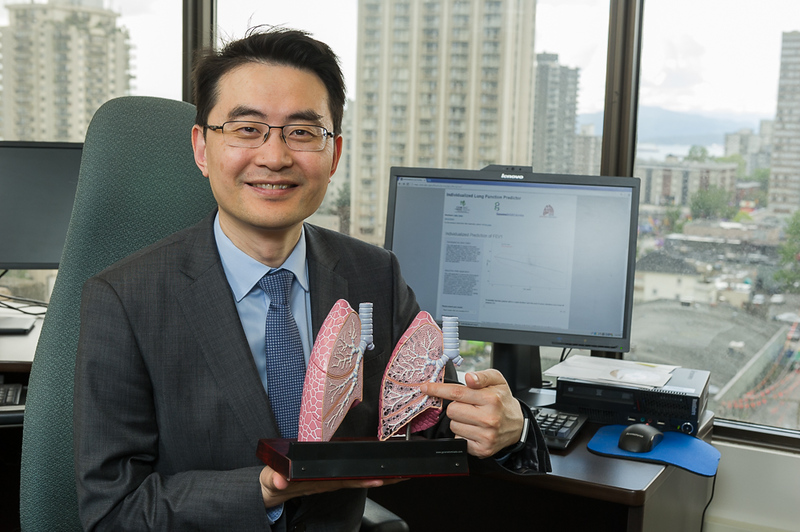Autoimmunity may be the driver of long COVID, according to a new study published in the European Respiratory Journal.
Roughly 10 to 20 per cent of people who recover from COVID-19 experience lasting symptoms after their initial infection, including fatigue, cough, shortness of breath, and cognitive impairment.
Yet much is still unknown about this syndrome, commonly known as long COVID.
Currently, no Health Canada-approved treatments exist.
This study, led by researchers from McMaster University in collaboration with Drs. Chris Carlsten, Agnes Che Yan Yuen, Kevin Soon-Keen Lau, and Dr. Christopher Ryerson from the Centre for Heart Lung Innovation (HLI) in St. Paul’s Hospital, investigated the presence of autoantibodies in blood samples of patients with long COVID and their potential connection with long COVID symptoms.
The role of autoantibodies in long COVID
Dr. Carlsten, head of UBC respiratory medicine and a principal investigator at the HLI, began gathering blood samples in 2020 from patients at St. Paul’s COVID-19 clinic. His team was contacted by the last author of the paper, Dr. Manali Mukherji, who was interested in studying the level of autoantibodies in the COVID-19 patient samples.

The study enrolled 106 participants from multiple hospitals, including St. Paul’s. It investigated whether autoantibodies were present in long-COVID patients up to a year after infection. They measured the patients’ autoantibody levels at three, six and 12 months post-recovery and recorded their symptoms, such as fatigue, cough and shortness of breath, at each time point.
“It’s one of the very first studies showing solid data on these autoimmune responses in the blood of long-COVID survivors,” says Dr. Don Sin, director of the Centre for Heart Lung Innovation, who wrote a commentary on the study to help readers understand the importance and relevance of the article.
Autoantibodies are antibodies that target proteins in our own body, instead of targeting external foreign proteins. They can contribute to potentially harmful reactions like inflammation, clots in blood vessels, and other pathologies, which could potentially explain long COVID symptoms.
The study found that a large proportion of patients in the long COVID cohort demonstrated a significant antibody response compared to the healthy controls and patients with other respiratory tract infections. Persistent positive tests for the autoantibodies were associated with fatigue, shortness of breath, and cough severity, supporting the idea that these autoantibodies may be at least in part responsible for the long COVID symptoms.
Opening up new lines of investigation
While the findings of this study indicate a correlation between the presence of autoantibodies and long COVID, they do not definitively prove the connection. Future research is needed to prove whether these antibodies are the definite cause of the syndrome.
“We’re not to the point where we can be absolutely certain that this is the cause and effect, or even the primary mechanism by which long COVID sufferers are indeed suffering, but it’s a pretty strong hypothesis that is supported by the work of others,” says Dr. Carlsten.
This study opens up new possible lines of investigation, and points towards potential new therapies for people experiencing long COVID. One potential area of future research would be to conduct an intervention study, which would administer medicine for autoimmune diseases to long COVID patients. If the long COVID symptoms improve, that would be a significant step forward in proving this connection.
“Long COVID obviously continues to be burdensome and frustrating for those that suffer from it,” says Dr. Carlsten. This research is particularly significant, because discovering the root cause of long COVID could lead to treatments for the syndrome.
“If this is true that autoimmunity is driving long COVID, then treatments for autoimmunity may be effective in treating patients with long COVID. So, I think that there is some light at the end of the tunnel for patients suffering from long COVID symptoms,” says Dr. Sin.
Story by Grace Jenkins, Providence Research





